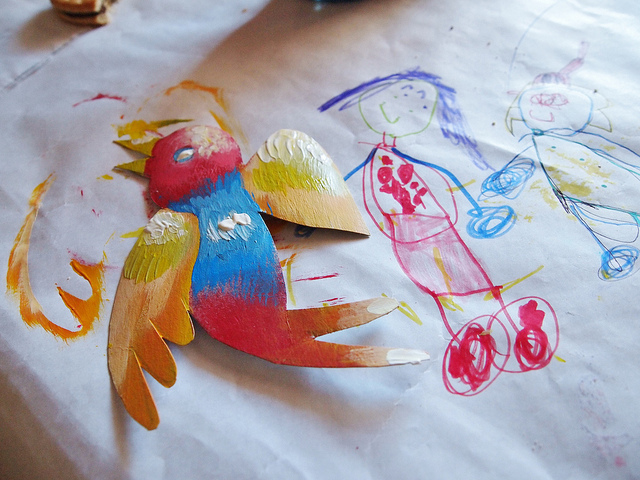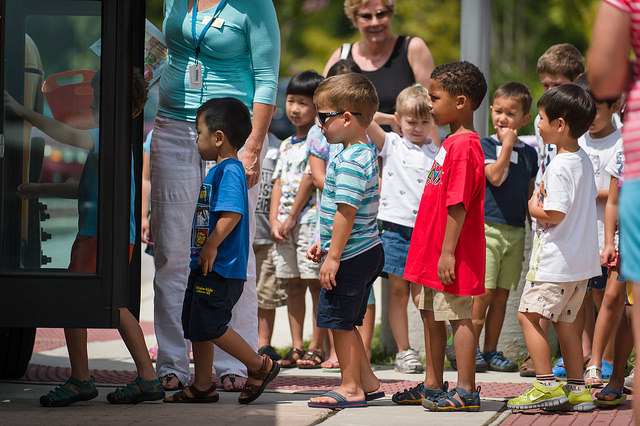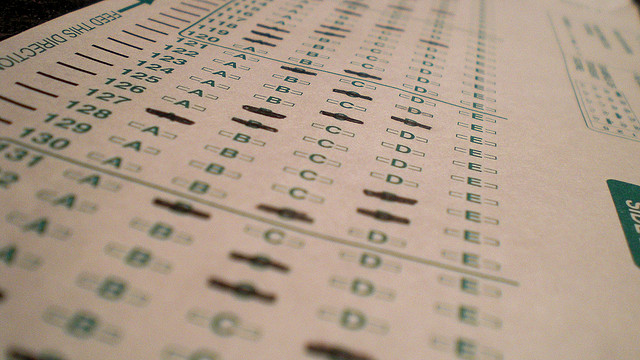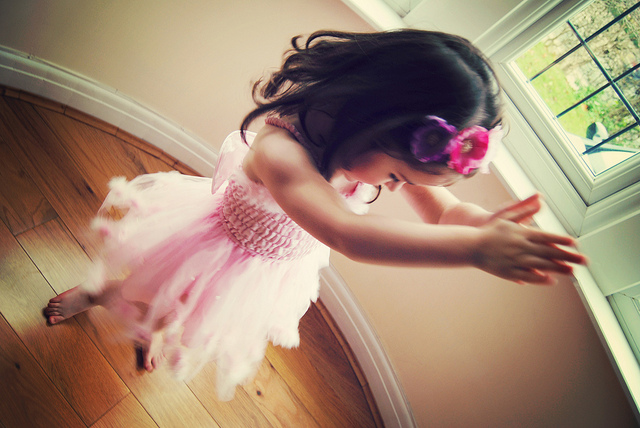“Creativity is as important now in education as literacy and we should treat it with with the same status.”
-Ken Robinson
After listening to this TED talk at least once a month since I discovered in back in January, I decided I NEEDED to share it. I’ve since become quite a fan of Ken Robinson and enjoy listening to him.
He does his research, poses great questions and is well-spoken. In addition he’s quite funny! I shared this with my husband and even he – who makes his living as a running nerd – thoroughly enjoyed this talk which questions the future of education.
In this video, Ken talks about how children are born creative but our current school system slowly squashes this out of them. He makes the point that schools are preparing our kids for the wrong things and teaching them to devalue the exact talents and abilities they will need to be successful in the future.
We have no idea what the future will look like
Because I strive to bring high-quality, relevant content to my readers, I am constantly doing research to explore current topics in education.
Just as I emphasized in my post about the effect on screen time for kids, while I currently prohibit my toddler daughter from using an iPad, I have no idea what technology will look like in 5 years, let alone 6 months from now!
My views and rules around screen time could easily (and almost certainly will) change and I’m okay with that.
Because our knowledge is evolving so fast and ever changing, I even have difficulty referencing studies in my articles that are over 5 years old!
Kids starting kindergarten now will retire in 2076
Our kindergartners will graduate college as the class of 2031 with 40 years of work ahead of them. What does that look like? What skills do they need?
How can we even possibly begin to know how to prepare our students for the future? Ken explains how the current school model is outdated.
In order to prepare our students for a unpredictable, fast-changing world we need to cultivate their creativity instead of train them to be compliant workers for jobs that no longer exist.
How schools are killing creativity
Children are capable of extraordinary creativity and innovation, yet we squander their talents.
Ken tells a humorous story (4:08) about a 4 year old boy that demonstrates this ability of children to be willing to take chances and not worry about making mistakes. If little kids don’t know something, they will try anyway. They have no fear of being wrong.
However, kids quickly lose this capacity.
Constant high-stakes testing quickly emphasizes to children that mistakes are the worst things that you can make. They come at a high cost – to kids, teachers and schools. The real danger in all this is that…
If you’re not prepared to be wrong, you’ll never come up with anything original. – Ken Robinson
Our schools today are still teaching mostly content – things to be memorized. We teach children that knowledge is something to be passed down – not discovered – and that what’s most important is one’s individual knowledge alone (forget collaboration).
Schools were initially designed to prepare kids to work in the Industrial Revolution – and unfortunately they haven’t changed much. There still is a hierarchy of subjects that is pretty much the same around the world – first comes math and literacy, then the humanities and finally the arts.
Even within the arts we value art & music before drama and dance. Ken challenges the traditional hierarchy – why don’t we teach dance 5 days a week like we do math? What message does this send to kids and are we actually helping them?
How do we prepare kids for a world we know nothing about?
“Many highly-talented, brilliant, creative people think they’re not, because the thing they were good at at school wasn’t valued, or was actually stigmatized.” – Ken Robinson
We have big problems today like climate change, sustainability and the exponentially evolving world of technology – my husband has already convinced me that artificial intelligence will take over civilization in our lifetime. These big problems of our time require us to do research, find novel solutions and think creativity.
How can we prepare kids for this ever-changing world that we have no idea what will look like? What skills do children need to solve these big problems?
What can we do as schools and teachers?
We need to not just give answers, but encourage questions. Place less emphasis on individual standardized tests and follow a new report card that demonstrates real skills. Teach children to value and learn from their mistakes and how to discover knowledge by working together.
Finally we need to give kids the time to create, innovate, tinker and experiment.
I believe that if we really want to prepare our kids for their future, we need kids to be able to do the following things:
- stay curious and ask questions
- be willing to be wrong, take risks & learn from mistakes
- think creatively, problem solve & come up with novel solutions
- gather information from a variety of sources, analyze information & think critically
- collaborate with others & build on their ideas
- understand and love the natural environment to be motivated to preserve our planet
Final food for thought
In the end of the talk (15:00), Ken tells the story of Gillian Lynne, a famous choreographer and multi-millionaire known most for her awarding winning choreography of Cats.
I love this story because it is so powerful and challenges the way we think about how kids should learn and behave.
At the young age of 8, Gillian constantly disturbed other kids in class, was always forgetting her homework and couldn’t sit still – sound familiar? The school wanted her to be evaluated for a learning disability. Her mother took her to the doctor and after engaging with Gillian said to her mother, “Gillian isn’t sick – she’s a dancer. Take her to a dance school.”
Her mother followed this advice and Gillian’s whole world changed. When she stepped into the dance school she realized she was at the right place. “I can’t tell you how wonderful it was. We walked in this room and it was full of people like me. People who couldn’t sit still. People who had to move to think.“
I love listening to this story again and again to remind myself of the wonderful capabilities of children.
By limiting them to the strict rules of what success in school looks like and labeling them based on that assumption of success, we are unable to recognize – and therefore squash – their amazing talents.
Let me hear your reactions to this TED Talk
How is your school preparing kids for this unpredictable future?
Is the emphasis on 21st century skills helping shape our curriculum for the better? What about Common Core?
What skills do you hope to develop in your own children to help them be successful adults?




